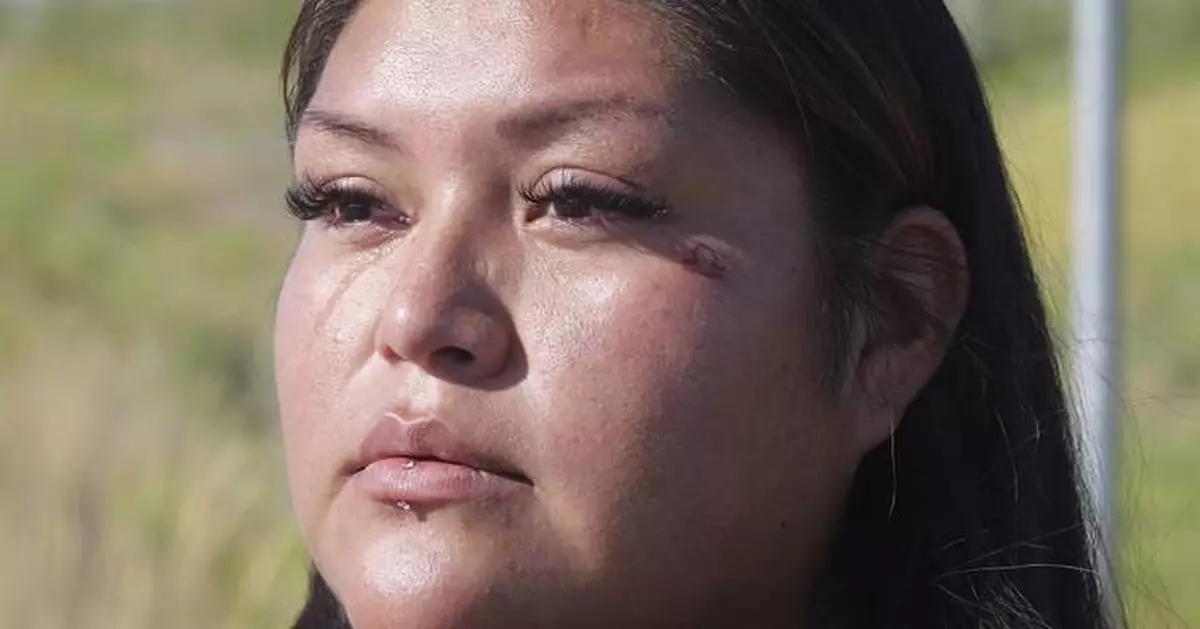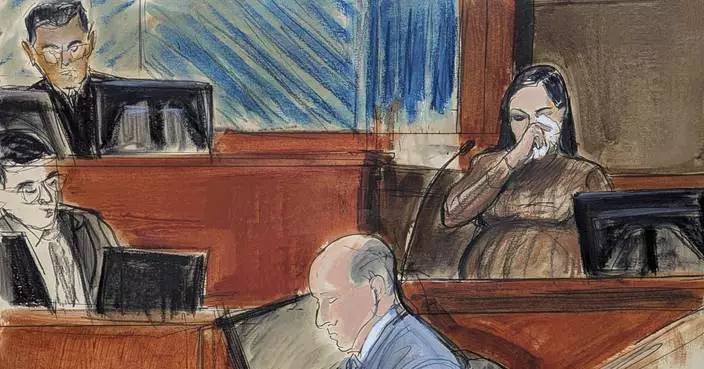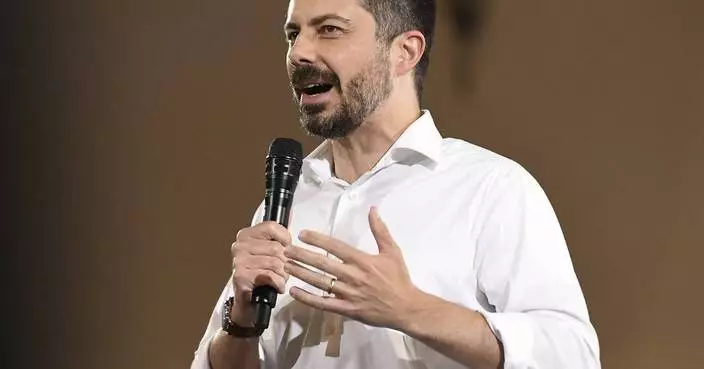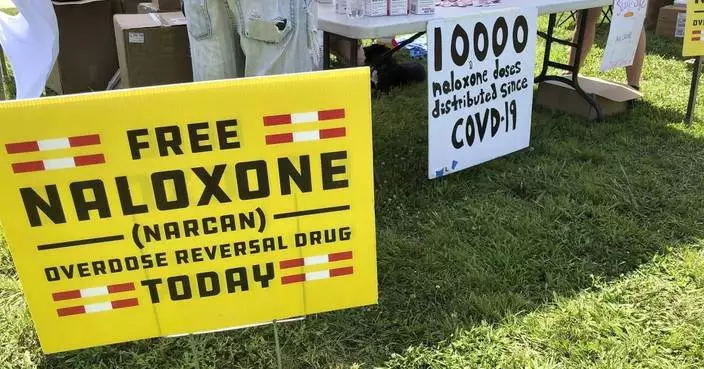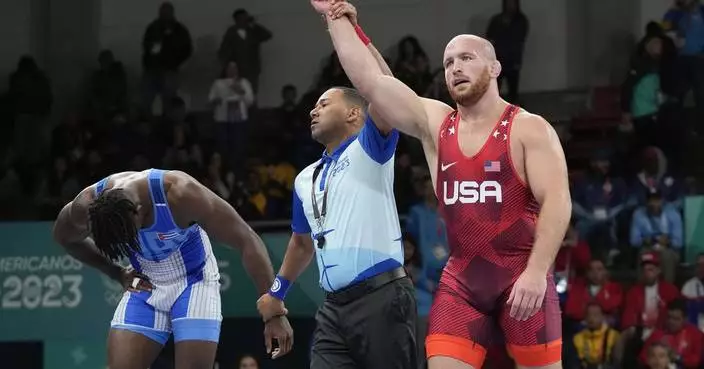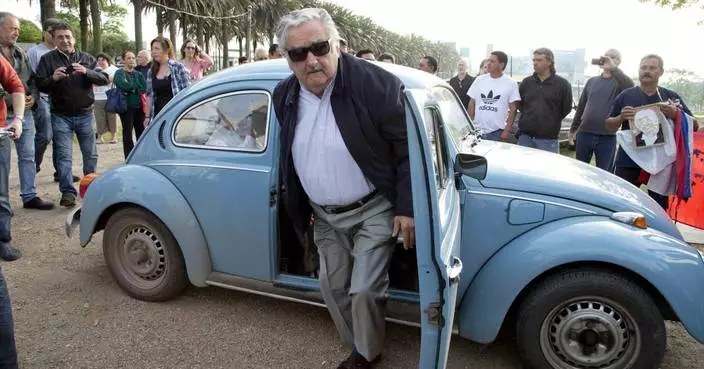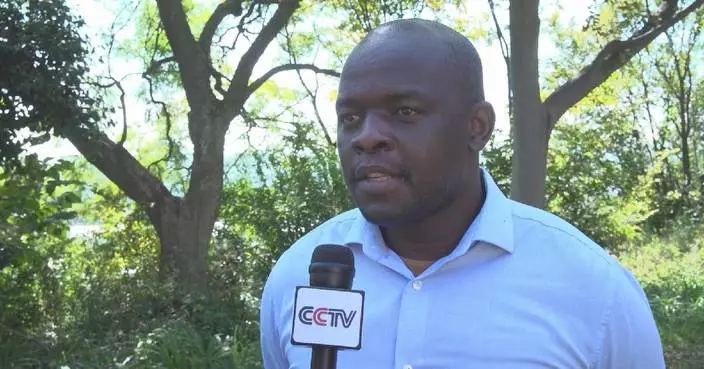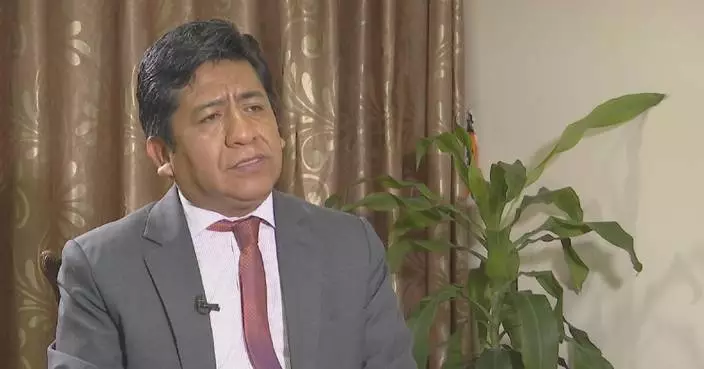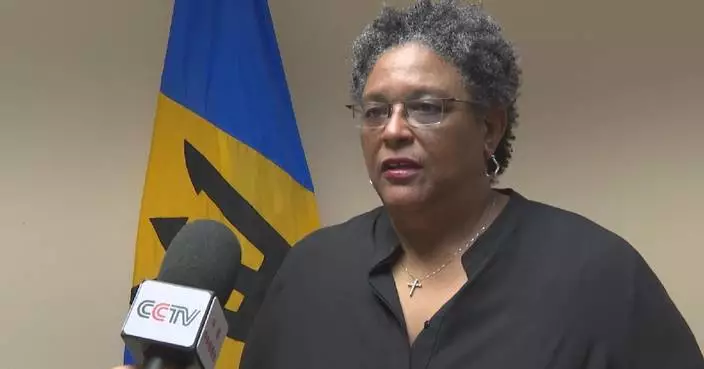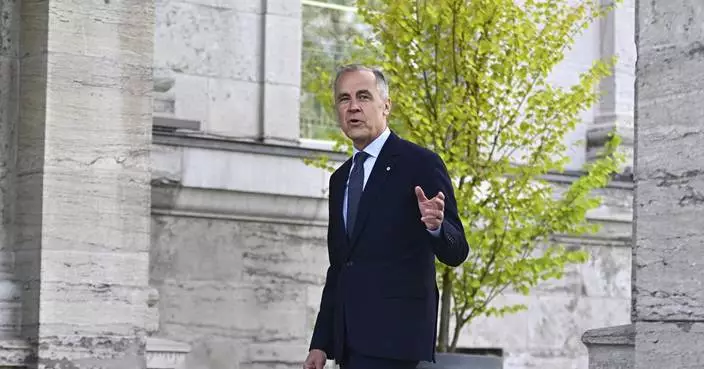SALT LAKE CITY (AP) — Tressa Honie is caught between anger and grief in the lead-up to Utah’s first execution since 2010. That’s because her father is the person set to die by lethal injection, and her maternal grandmother is the person he brutally murdered in 1998.
The heinous intrafamilial crime has placed a strain on her relationships for more than two decades as she’s kept in touch with her father in prison while her mother's family has fought relentlessly for him to be put to death.
Click to Gallery
FILE-Death row inmate Taberon Honie is cuffed during the Utah Board of Pardons commutation hearing on July 23, 2024, at the Utah State Correctional Facility, in Salt Lake City. (AP Photo/Rick Bowmer, Pool, File)
The Utah State Correctional Facility is shown Tuesday, Aug. 6, 2024, in Salt Lake City. (AP Photo/Rick Bowmer)
FILE - Death row inmate Taberon Honie leaves the Utah Board of Pardons commutation hearing on July 22, 2024, at the Utah State Correctional Facility, in Salt Lake City. (AP Photo/Rick Bowmer, Pool, File)
FILE-Death row inmate Taberon Honie looks on during the Utah Board of Pardons commutation hearing on July 22, 2024, at the Utah State Correctional Facility, in Salt Lake City. (AP Photo/Rick Bowmer, Pool, File)
Tressa Honie, daughter of death row inmate Taberon Honie, looks on during an interview Tuesday, Aug. 6, 2024, near the Utah State Correctional Facility, in Salt Lake City. (AP Photo/Rick Bowmer)
Tressa Honie, daughter of death row inmate Taberon Honie, looks on during an interview Tuesday, Aug. 6, 2024, near the Utah State Correctional Facility, in Salt Lake City. (AP Photo/Rick Bowmer)
In her final 48 hours visiting Taberon Dave Honie before his execution, set for Thursday shortly after midnight, Tressa is grappling with how to carry out his dying wish: for her to move on and heal.
“My mom's side, they can heal together," she said in an interview. “I'm happy you guys are going to get this closure, this justice, but where does that leave me? I feel like I have to heal alone.”
Tressa left the Utah state prison in a daze Tuesday evening as it hit her that she would only have one more day with her father, who she credits as her most supportive parent after drug use drove a wedge between her and her mother. As the 27-year-old prepares to grieve her father, she's also grieving the life she could have had if his crimes hadn't trapped her family in a cycle of self-destruction and left them mourning the matriarch she believes could have kept them all in line.
Honie, one of six death row inmates in Utah, was convicted of aggravated murder for the July 1998 death of his girlfriend’s mother, Claudia Benn. He was 22 when he broke into Benn’s house in Cedar City, the tribal headquarters of the Paiute Indian Tribe of Utah, after a day of heavy drinking and drug use. He repeatedly slashed Benn's throat and stabbed other parts of her body. The judge who sentenced him to death also found that Honie had sexually abused one of Benn's grandchildren who was in the house with a then 2-year-old Tressa at the time of the murder.
Utah’s execution is scheduled to occur a few hours after one in Texas, where a man described by his lawyers as intellectually disabled was executed for strangling and trying to rape a woman who went jogging near her Houston home more than 27 years ago.
Honie, now 48, told Tressa he has come to terms with his fate, she said.
The father and daughter spent their final days talking about anything but his crimes, sharing early childhood memories and laughing about how neither has a favorite color. After years of resentment, she's ready to replace some of the anger she's held for her father with reminders of his humanity.
But their meetings haven't always been so cordial. Tressa grew up knowing her father was behind bars but didn't know why until she approached him at 14, looking for answers. Honie struggled to look at her as he explained some of what he had done and told her where she could find the court records, she recalled.
“When I did find out fully why he was in prison or on death row, I thought, ‘Well, maybe if I wasn’t born, this wouldn't have happened,'” Tressa said. “I did kind of blame myself. I didn't know how to cope.”
Years of drug abuse followed, distancing Tressa from family members who tried to extend support while grieving Benn, who they described as a pillar in their family and community. Benn was a tribal council member, substance abuse counselor and caregiver for her children and grandchildren.
Tressa has few memories of her grandmother, but she's found herself grieving the absence of a strong maternal role model.
“Hearing the type of woman my grandmother was, I would've loved that,” she said.
Her father also started using drugs such as cocaine, heroin and methamphetamine at a young age. Honie's attorneys testified about his own childhood trauma from parents who abused alcohol. They and others on the Hopi Indian Reservation where he grew up had been placed in government boarding schools that were often abusive and stripped Indigenous children of their culture as part of assimilation efforts.
Now, Tressa is determined to break that cycle of generational trauma.
She is in recovery, raising a child of her own and has developed some empathy for her father after her own addiction struggle. Honie has said he wasn’t in his “right mind” when he killed Benn and doesn’t remember much about the murder.
Trevia Wall, Benn’s niece, said she's had an “on-and-off” relationship with Tressa over the years but has tried to offer her extra support leading up to her father’s death. Wall was among those who testified in favor of Honie’s execution — an outcome she deemed necessary to get justice for her aunt. The two cousins embraced and cried together after the last hearing.
“It’s bittersweet,” Wall said in an interview. “Now we can finally move forward, we can finally heal, but it’s bitter because I hurt for my cousin, his daughter. He put her in the middle, and she was torn between her father and her grandmother.”
Randall Benn, another cousin who supported the family's push to execute Honie, said he knows it will close a painful chapter in his life but will open a new one for Tressa. He said he and other family members will be waiting with open arms whenever she’s ready.
Even though Tressa had urged the parole board to commute her father's death sentence, she plans to witness his execution. About a dozen family members are expected to attend.
“I just want to be there to the end," she said, "for me and him.”
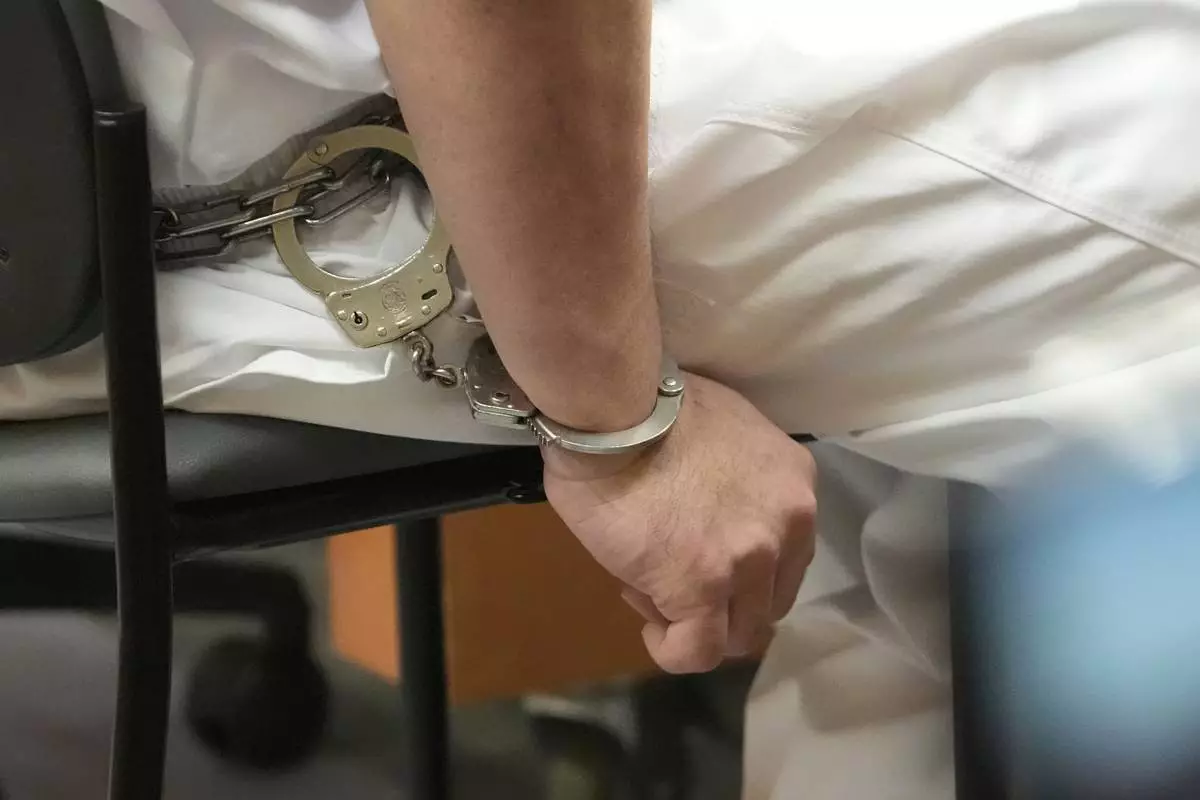
FILE-Death row inmate Taberon Honie is cuffed during the Utah Board of Pardons commutation hearing on July 23, 2024, at the Utah State Correctional Facility, in Salt Lake City. (AP Photo/Rick Bowmer, Pool, File)
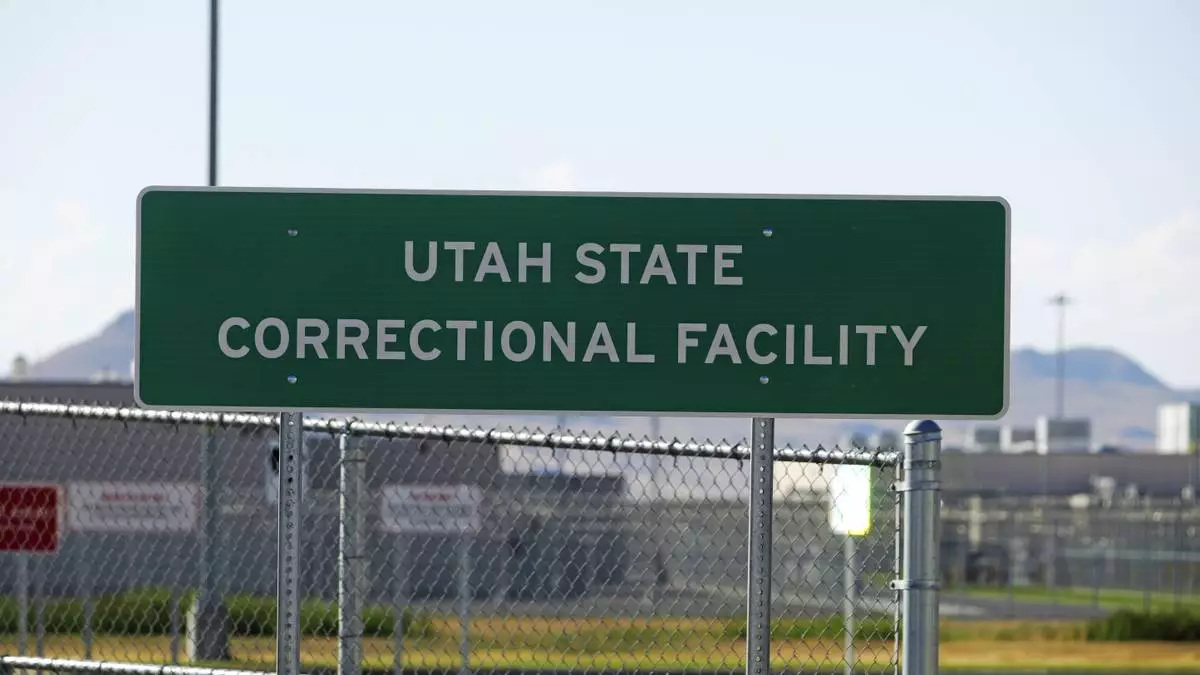
The Utah State Correctional Facility is shown Tuesday, Aug. 6, 2024, in Salt Lake City. (AP Photo/Rick Bowmer)
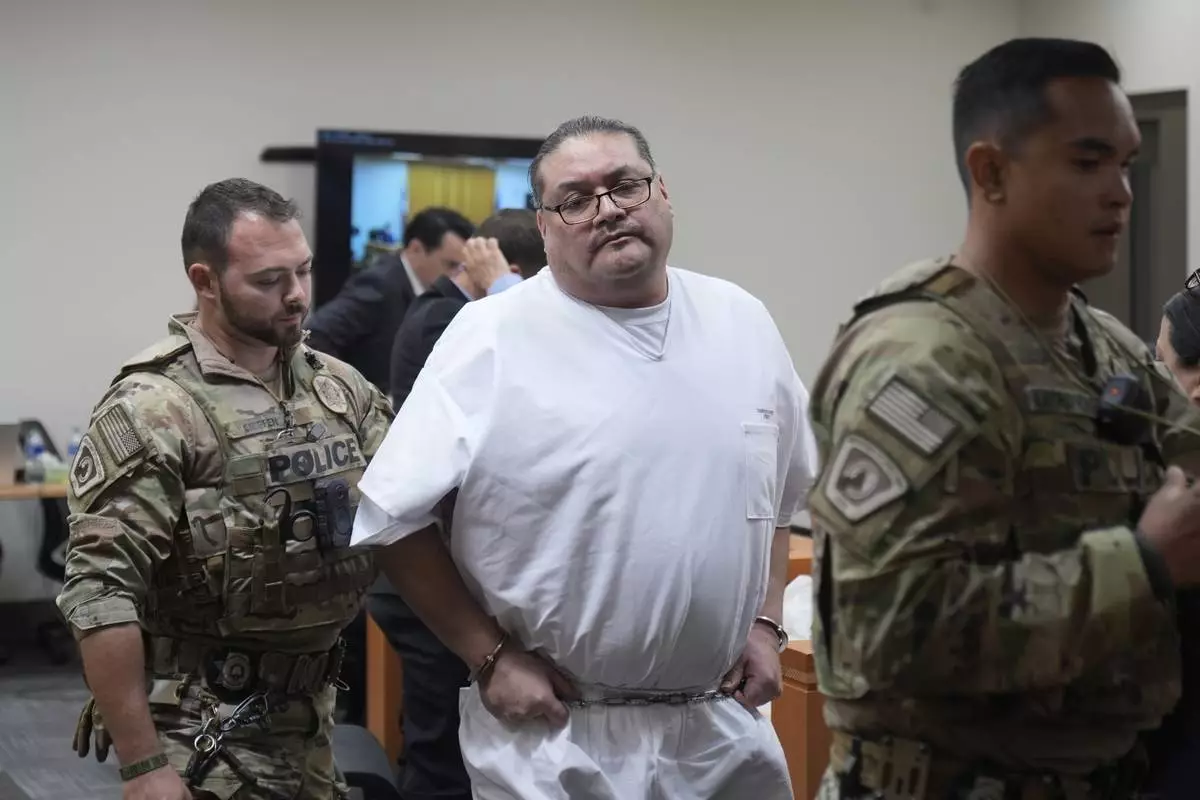
FILE - Death row inmate Taberon Honie leaves the Utah Board of Pardons commutation hearing on July 22, 2024, at the Utah State Correctional Facility, in Salt Lake City. (AP Photo/Rick Bowmer, Pool, File)
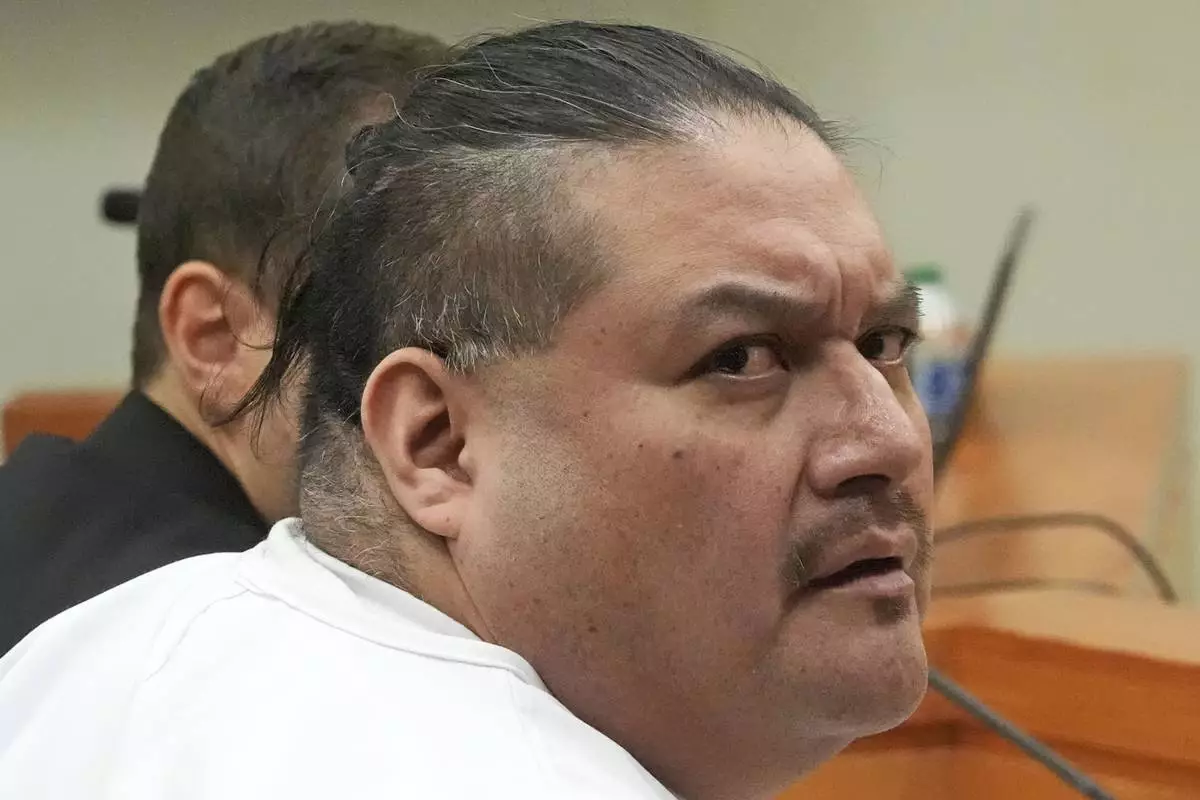
FILE-Death row inmate Taberon Honie looks on during the Utah Board of Pardons commutation hearing on July 22, 2024, at the Utah State Correctional Facility, in Salt Lake City. (AP Photo/Rick Bowmer, Pool, File)
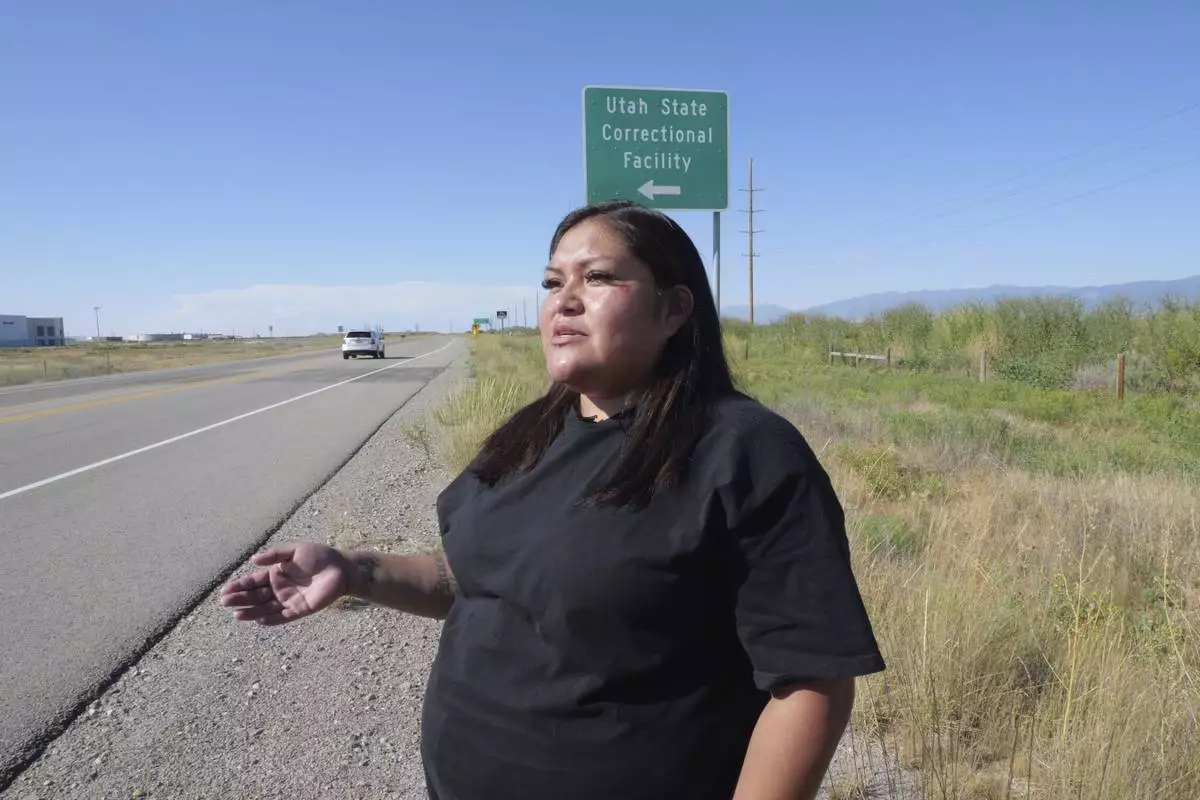
Tressa Honie, daughter of death row inmate Taberon Honie, looks on during an interview Tuesday, Aug. 6, 2024, near the Utah State Correctional Facility, in Salt Lake City. (AP Photo/Rick Bowmer)
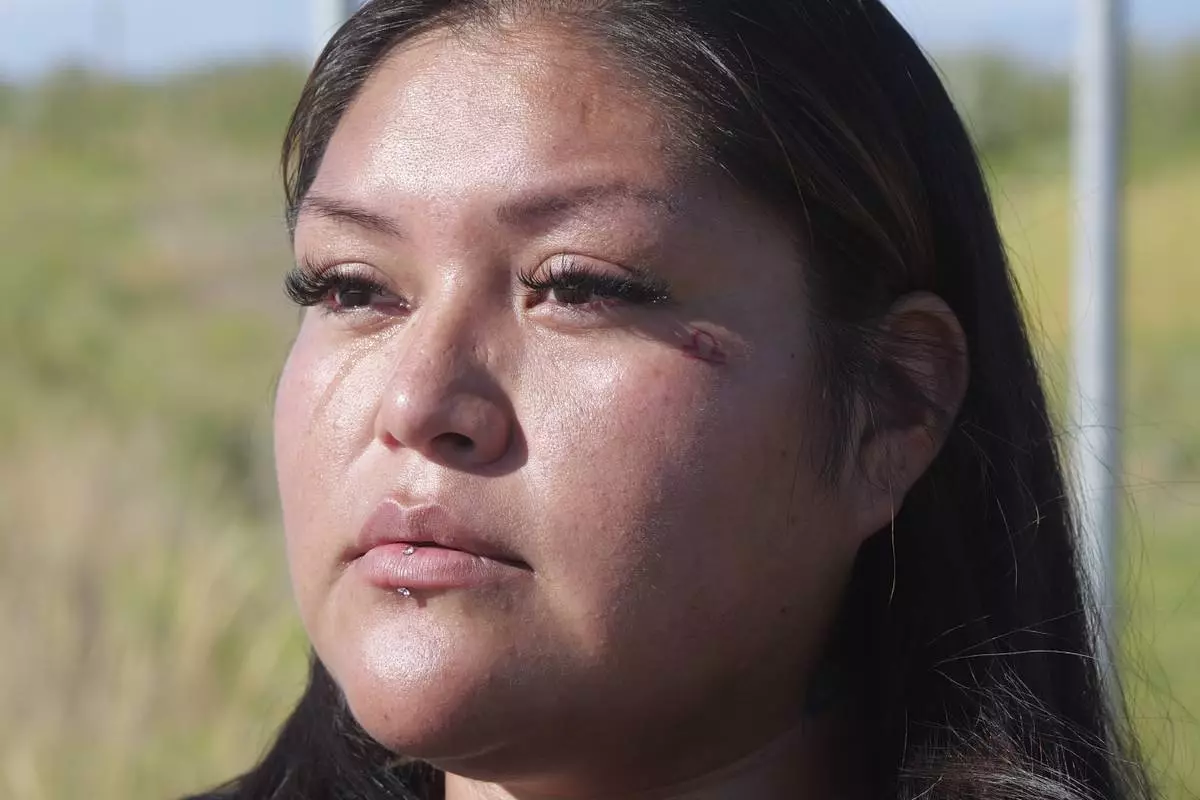
Tressa Honie, daughter of death row inmate Taberon Honie, looks on during an interview Tuesday, Aug. 6, 2024, near the Utah State Correctional Facility, in Salt Lake City. (AP Photo/Rick Bowmer)
NEW YORK (AP) — The R&B singer Cassie returns to the witness stand Wednesday after a day spent recounting grotesque and humiliating details of life with her ex-boyfriend, Sean “Diddy” Combs.
Prosecutors allege Combs used his fame and fortune to orchestrate an empire of exploitation, coercing women into abusive sex parties. His lawyers argue that, although he could be violent, he never veered into sex trafficking and racketeering. They contend all sexual acts were consensual.
Here's the latest:
Combs is in a creme-colored knit sweater over a button down white shirt with gray pants. He occasionally dons thick, black-rimmed glasses when exhibits are shown.
He stood and hunched over a laptop with two of his lawyers as his other lawyers conferred with prosecutors and the judge at the bench about logistics for the playing of “freak off” videos.
And she said it could ruin everything she’d worked for and “make me look like a slut.”
She said she always worried he’d get mad enough to release them.
“I feared for my career. I feared for my family. It’s just embarrassing. It’s horrible and disgusting. No one should do that to anyone,” she said.
She said he claimed police were about to arrest him. And when she refused to accept his phone calls, Combs told her that if she didn’t pick up the phone, she’d “never hear my voice again,” Cassie said.
Jurors were then shown pictures of Cassie and Combs at a movie premier soon after the March 2016 hotel attack. Cassie described bruises on her body that were visible in the photographs and said she was unable to cover up all the damage with makeup. She wore dark sunglasses to cover her black eye.
She said she took the selfies on her Uber ride away from the Los Angeles hotel. She said she wore sunglasses because she had a black eye.
Once home, she said a friend of hers saw her injuries and was “super upset” because she’d “seen me with black eyes and busted lips before.”
Cassie said her friend called police, but she declined to reveal who had injured her once police arrived so they left.
“In that moment, I didn’t want to hurt him that way,” she testified. “I wasn’t ready.”
“I just remember it coming towards me. I remember it hitting a wall,” she said.
Earlier in the trial, a hotel security guard said he saw the damage when he arrived upstairs and told Combs he would have to pay for it. Cassie said she left the hotel in an Uber and went to her apartment, which was nearby.
Testimony resumed shortly before 10 a.m. on Wednesday at Combs’ sex trafficking trial with Cassie answering questions posed by prosecutor Emily Johnson for a second day.
Cassie was in a relationship with Combs for a decade. Johnson picked up where she left off Tuesday, asking Cassie about video images of Combs beating her at a Los Angeles hotel in 2016.
During her testimony Tuesday, Cassie said eventually she was doing “freak offs” weekly. They went on for a decade, with the final one in 2017 or 2018, she said. Each time, she said, she had to recuperate from lack of sleep, alcohol, drugs and “having sex with a stranger for days.”
She described the situation as: “‘Freak offs’ became a job where there was no space to do anything else but to recover and just try to feel normal again.”
During her opening statement, prosecutor Emily Johnson told the jury Cassie was not the only woman Combs beat and sexually exploited.
Combs was among the most influential hip-hop producers and executives of the past three decades, working with artists including Notorious B.I.G., Mary J. Blige and Usher. He also created the fashion clothing line Sean John and produced the reality show “Making the Band.”
Prosecutor Emily Johnson, who delivered an opening statement Monday, has softened her tone considerably in questioning the government’s star witness, Cassie, about the 10 years she spent with Combs.
While she repeatedly referred to Combs as “the defendant” in her opening, Johnson often calls him “Sean” as she delicately questions Cassie, who’s in the third trimester of pregnancy with her third child.
Cassie said her first “freak off” occurred in Combs’ Los Angeles home with a male stripper from Las Vegas. She told jurors she felt dirty and confused afterward, but also relieved that Combs was happy.
Still, she said she felt obligated to go along with future “freak offs.”
“I just didn’t want to make him upset,” she said. “I just didn’t want to make him angry and regret telling me about this experience that was so personal.”
Cassie began crying when asked if she liked any aspect of the “freak offs.” She said she enjoyed “time spent with him.”
She said she used drugs at every “freak off” to numb herself during “emotionless sex with a stranger that I didn’t really want to have sex with.”
The Associated Press doesn’t generally identify people who say they are victims of sexual abuse unless they come forward publicly, as Cassie has done.
In her 2023 civil lawsuit, Cassie alleges Combs trapped her in a “cycle of abuse, violence, and sex trafficking” for more than a decade, including raping her and forcing her to engage in sex acts with male sex workers. Combs settled the lawsuit the next day.
In May 2024, CNN aired video that showed Combs attacking Cassie in a hotel hallway in 2016. The video closely mirrored an assault described in her lawsuit, which said Combs had already punched her that night, and she was trying to leave the InterContinental Hotel in Los Angeles when he woke and came after her. In the footage, a man who appears to be Diddy, wearing only a towel, punches Cassie, kicks her, and throws her on to the floor. The lawsuit alleges Combs paid $50,000 to bury the video at the time.
Among other things, Cassie alleges Combs raped her when she tried to leave him and often punched, kicked and beat her, causing injuries including bruises, burst lips, black eyes and bleeding.
Prosecutor Emily Johnson says she’ll be questioning Cassie about her 10-year relationship with Combs for about half the day today before defense lawyers begin their cross examination.
She finished Tuesday by questioning Cassie as prosecutors once again displayed recorded footage of Combs’ attack on Cassie at a bank of elevators in a Los Angeles hotel in 2016. He kicked her and dragged her and later apologized after CNN first aired video of the attack last year.
Cassie told jurors she was “sexually inexperienced” when she met Combs and that he introduced her to various sex acts before asking her to engage in her first “freak off” when she was barely 22. Cassie said she was “confused, nervous, but also loved him very much” and “wanted to make him happy.”
Cassie, now 38, said her relationship with Combs ran the gamut from good times to arguments and physical altercations. She said the abuse happened “too frequently” and sometimes came after the smallest perceived slights.
Cassie said Combs ordered her to recruit male sex workers for “freak offs” and that he would pay them thousands of dollars to have sex with her. The encounters, fueled by ecstasy and other drugs, would go on for 36 or 48 hours, and she said the longest lasted four days. They took place in private, often in dark hotel rooms, unlike Combs’ very public White Parties in the Hamptons that attracted A-list celebrities.
▶ Read more about Cassie’s first day of testimony
A jury of 12 New Yorkers, plus a half-dozen alternates, is hearing testimony at the trial.
The group tilts male and middle-aged or older. Only three jurors are under 40. Five are over 60. Classical music listeners outnumber people who identified as hip-hop fans.
Their identities are known to the judge and lawyers but won’t be made public. The jurors revealed a little about themselves as they were selected for the trial.
Here’s what we know about the regular jurors:
Eight men
Four women
▶ Read more about the jury
Cassie sued Combs in 2023 alleging years of rape and abuse. The suit was settled within hours, but was followed by dozens of similar legal claims and touched off a criminal investigation.
A singer, actor, dancer and model, Cassie’s professional ambitions began in adolescence, when she signed to the top-tier talent and modeling agency Wilhelmina. Her music career launched shortly thereafter, when she left her home state of Connecticut for New York, where she signed with manager Tony Mottola and first met Combs.
Cassie met Combs in 2005 when she was 19 and he was 37. He signed her to his Bad Boy Records label and, within a few years, they started dating.
▶ Read more about Cassie
Cassie returns to the witness stand Wednesday after a day spent recounting grotesque and humiliating details of life with her ex-boyfriend.
During her first day of testimony, Cassie described being pressured into degrading sexual encounters with paid sex workers. She also recounted being beaten numerous times by Combs when she did things that displeased him — like smiling at him the wrong way.
“You make the wrong face and the next thing I knew I was getting hit in the face,” she said.
Cassie, whose legal name is Casandra Ventura, accused Combs of gaining her submission by threatening to publicly release videos of her with male sex workers.
Combs’ attorneys have acknowledged Combs could be violent but maintain that the sexual acts were consensual. They say nothing he did amounted to sex trafficking or racketeering — the charges that he faces.
Lawyers for Combs have yet to cross-examine Cassie, a type of questioning that will give them an opportunity to challenge her credibility or poke holes in her accounts of what happened.
▶ Read more about Cassie’s testimony
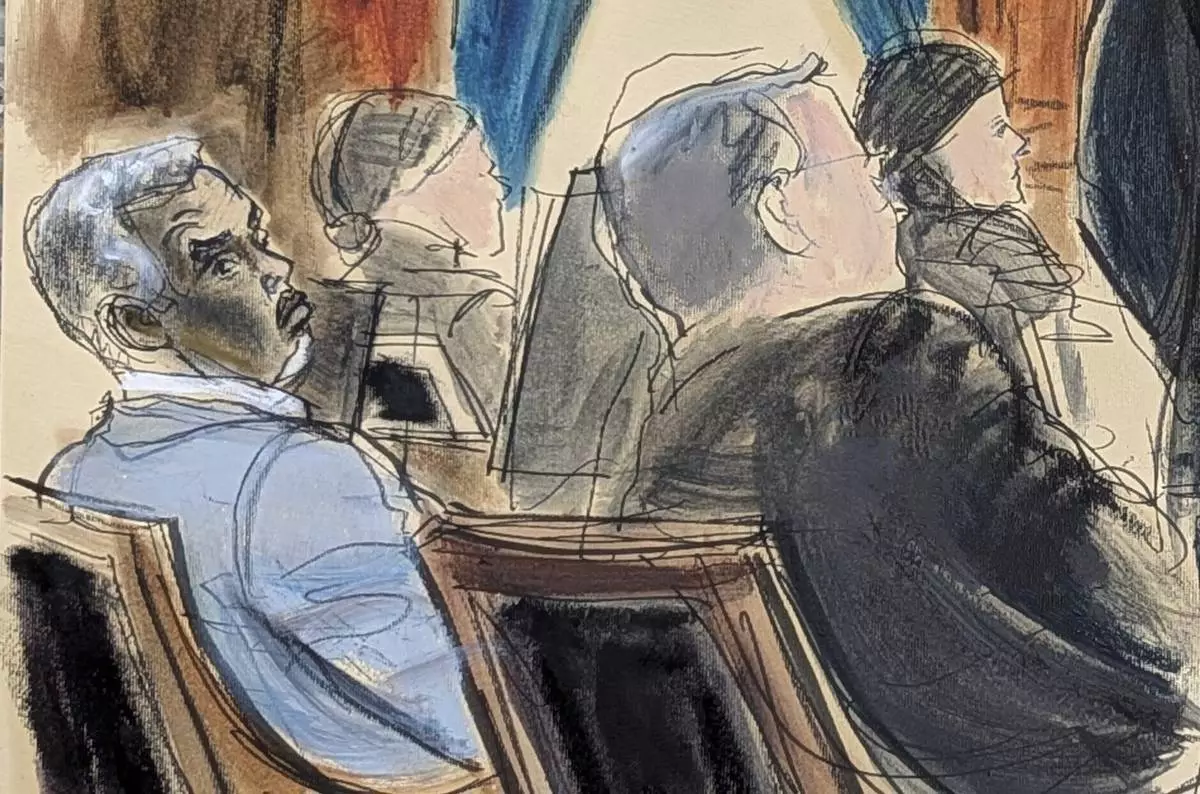
Sean Diddy'Combs, far left, and attorney Marc Agnifilo, right, sit at the defense table during witness testimony in Manhattan federal court, Tuesday, May 13, 2025, in New York. (Elizabeth Williams via AP)
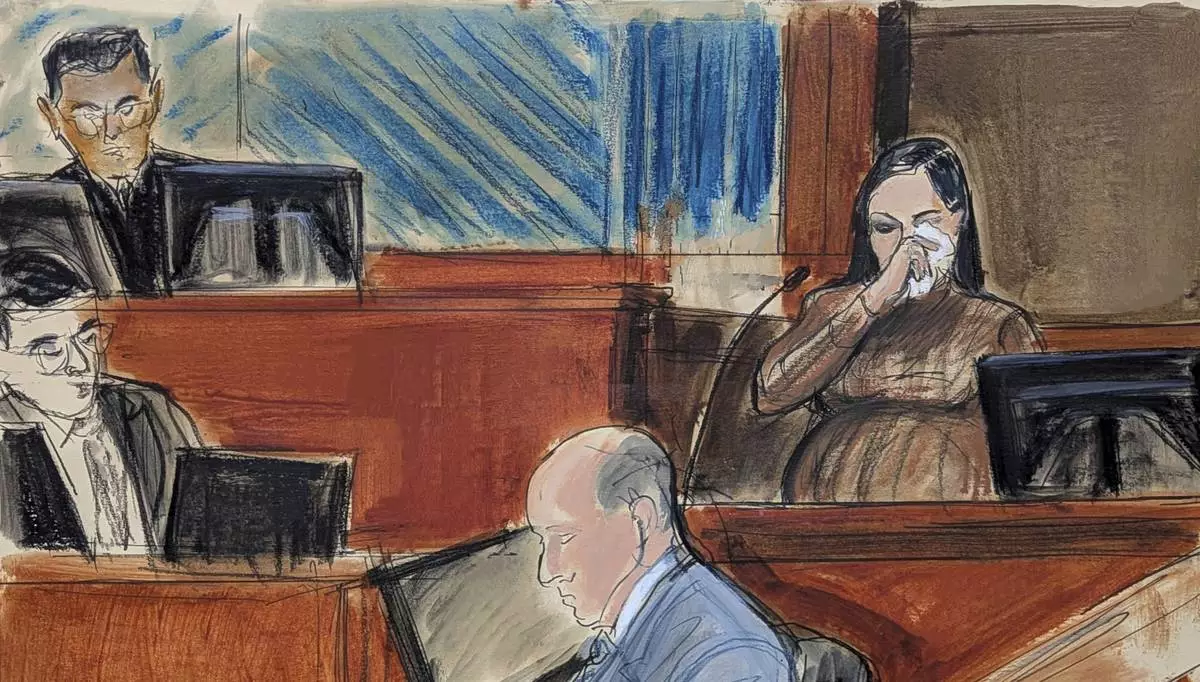
Cassie Ventura wipes tears from her eye while testifying in Manhattan federal court, Tuesday, May 13, 2025, in New York. (Elizabeth Williams via AP)








